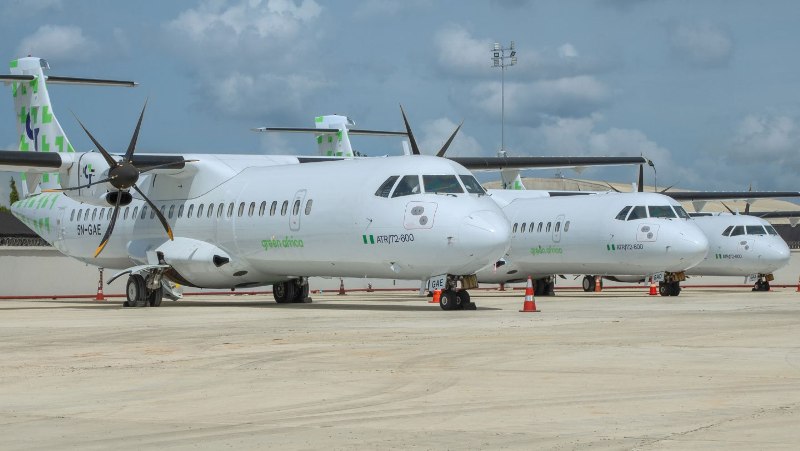Aviation Stakeholders Task Federal Government On Cape Town Convention Practice Directions

Rising from the Quarter3 Business Breakfast Meeting (BBM) of Aviation Safety Round Table Initiative (ASRTI) On November 28, 2024, stakeholders in Nigeria’s aviation industry say “to maximize the benefits of signing the Cape Town Convention Practice Directions, all-inclusive consultations and enlightenment sessions should be held with aviation stakeholders, judiciary members, and legal practitioners. The Practice Directions must be examined, lapses addressed, and training workshops for all interested parties must be included for implementation.”
This task is contained in a communique issued at the end of the meeting, where they observed that “the volume of domestic air travel traffic in Nigeria has dwindled due to the reduction of Nigerians’ purchasing power. The BBM urged the Federal Government to take deliberate steps to review and expunge outdated policies that hamper the industry’s growth, including the “22 maximum” age restriction on importing aircraft for commercial operations in Nigeria. Abolishing this policy will make more aircraft available to Nigerian airlines at better economic value. The meeting further urged the Federal Government to evolve an industry development model that will help maximize the use of the country’s 31 airports, 91 airstrips and emerging small state-owned airports.”
The communiqué observed that “Section 53 of the Practice Directions gives the Chief Judge of the Federal High Court powers to make orders based on the Cape Town Convention. However, the relevant Rule of Court to which the appropriate applications can be made is not contained in the said Practice Directions. The BBM opined that resort can be made to the Inherent Jurisdiction of the Court and Order 56 rules 1 and 6 of the Federal High Court (Civil Procedure Rules) 2019. The BBM also noted the whittling effect that appeals to the Court of Appeal and the Supreme Court on the efficacy of the Practice Directions.”
It further states that “aviation agencies and the entire sector are enablers of economic growth. Under ICAO regulations, these entities are to operate on a cost recovery model, not the vast profits recorded each year, enabling the government to draw over 50% of the revenues. To provide greater transparency and accountability, it was requested that Nigerian aviation agencies make public, their Annual Financial Reports.
The meeting urged the Federal government to inaugurate the various Boards of Aviation Agencies to ensure good corporate governance, transparency and responsibility.”
It however observes that “the Practice Directions demonstrate the political will of the Federal government of Nigeria to stimulate aircraft leasing transactions, reinforce aircraft lessors’ confidence in the Nigerian Aviation sector, and boost foreign direct investment in the aviation sector. The contents and provisions of the Irrevocable De-Registration and Export Request Authorization (IDERA) voluntarily entered into by Nigerian airlines shall be duly honoured by the Nigerian Civil Aviation Authority (NCAA). To this end, the Nigerian Civil Aviation Authority (NCAA) should engage airlines operating in Nigeria to educate them on their role in ensuring that the provisions and directives arising from the adjudication based on the Practice Directions will be complied with.”
The Lead Partner, Aelex Partners, Fubara Anga (SAN), who moderated the Panel Session at the BBM had pointed out that Practice Directions may not necessarily attract signing of more lease agreements because it only becomes relevant at the point where the lessor attempts to take away his aircraft and is in conflict with the operator; not at the point of signing the agreement or where eventually, there is no conflict in implementation. He wondered the capability of signing the CTC Practice Directions to change the prevailing lending decisions of international lenders, considering the existing volume of indebtedness and the prevailing foreign exchange crisis in Nigeria.
The BBM was held at GolfView Hotel Suites & Conference Centre, GRA, Ikeja, Lagos and speakers included Mrs. Olubunmi Kuku, Managing Director/Chief Executive, Federal Airports Authority of Nigeria (FAAN); Fubara Anga (SAN), Lead Partner, Aelex Partners; Pekun Sowole Esq, Principal Partner, Pekun Sowole & Co; Roland Iyayi, CEO, Topbrass Aviation and Air Cdr. Ademola Onitiju (Rtd), President, Aviation Safety Round Table Initiative (ASRTI).
The theme of the BBM was “Cape Town Convention: The Implications Of The Cape Town Practice Directions On The Fortunes Of Nigerian Airlines And The Economy.”
SEE MORE PHOTOS
PHOTOS From ASRTI 3rd Quarter 2024 Business Breakfast Meeting






